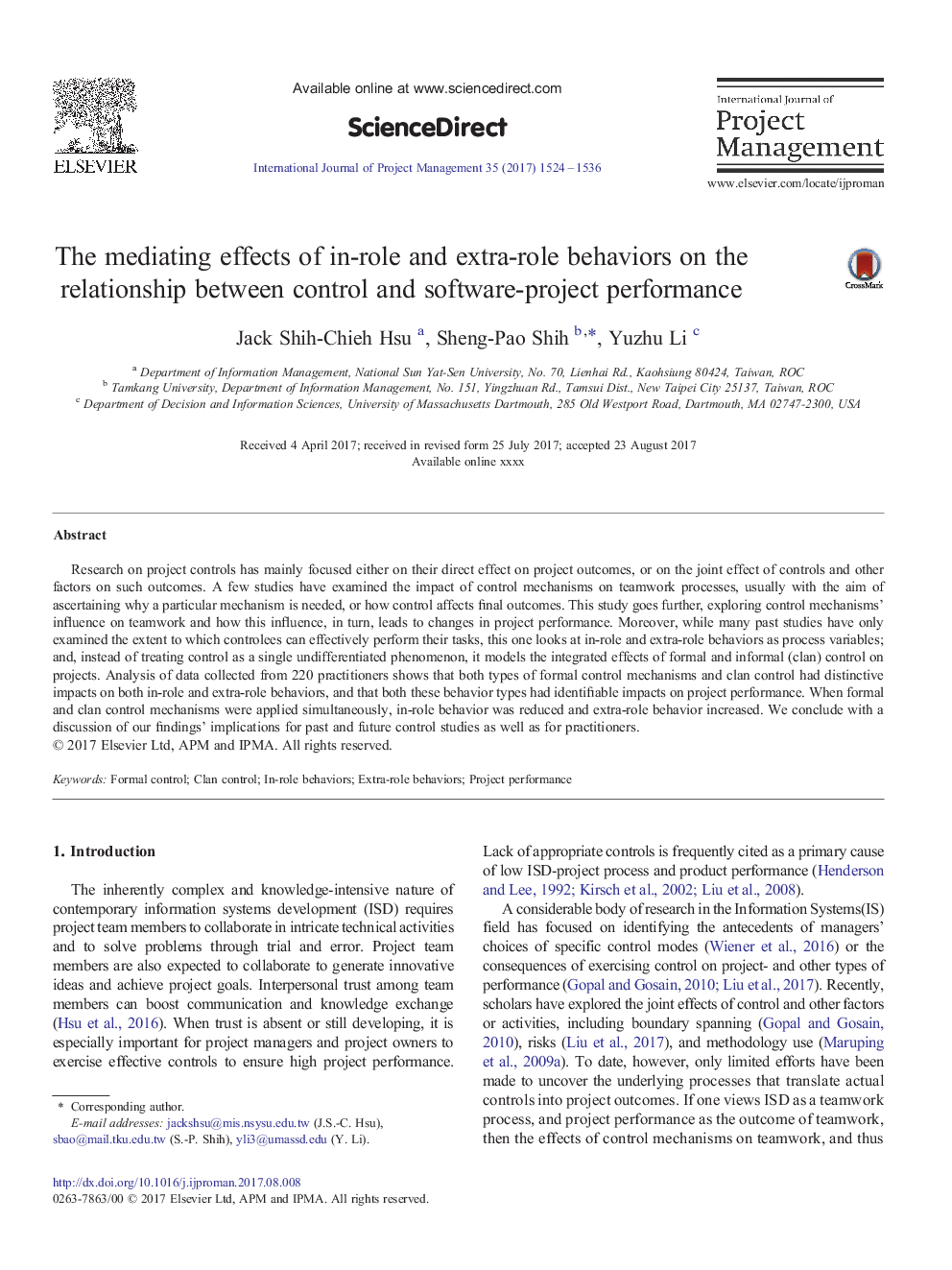| Article ID | Journal | Published Year | Pages | File Type |
|---|---|---|---|---|
| 4922061 | International Journal of Project Management | 2017 | 13 Pages |
Abstract
Research on project controls has mainly focused either on their direct effect on project outcomes, or on the joint effect of controls and other factors on such outcomes. A few studies have examined the impact of control mechanisms on teamwork processes, usually with the aim of ascertaining why a particular mechanism is needed, or how control affects final outcomes. This study goes further, exploring control mechanisms' influence on teamwork and how this influence, in turn, leads to changes in project performance. Moreover, while many past studies have only examined the extent to which controlees can effectively perform their tasks, this one looks at in-role and extra-role behaviors as process variables; and, instead of treating control as a single undifferentiated phenomenon, it models the integrated effects of formal and informal (clan) control on projects. Analysis of data collected from 220 practitioners shows that both types of formal control mechanisms and clan control had distinctive impacts on both in-role and extra-role behaviors, and that both these behavior types had identifiable impacts on project performance. When formal and clan control mechanisms were applied simultaneously, in-role behavior was reduced and extra-role behavior increased. We conclude with a discussion of our findings' implications for past and future control studies as well as for practitioners.
Keywords
Related Topics
Physical Sciences and Engineering
Engineering
Civil and Structural Engineering
Authors
Jack Shih-Chieh Hsu, Sheng-Pao Shih, Yuzhu Li,
